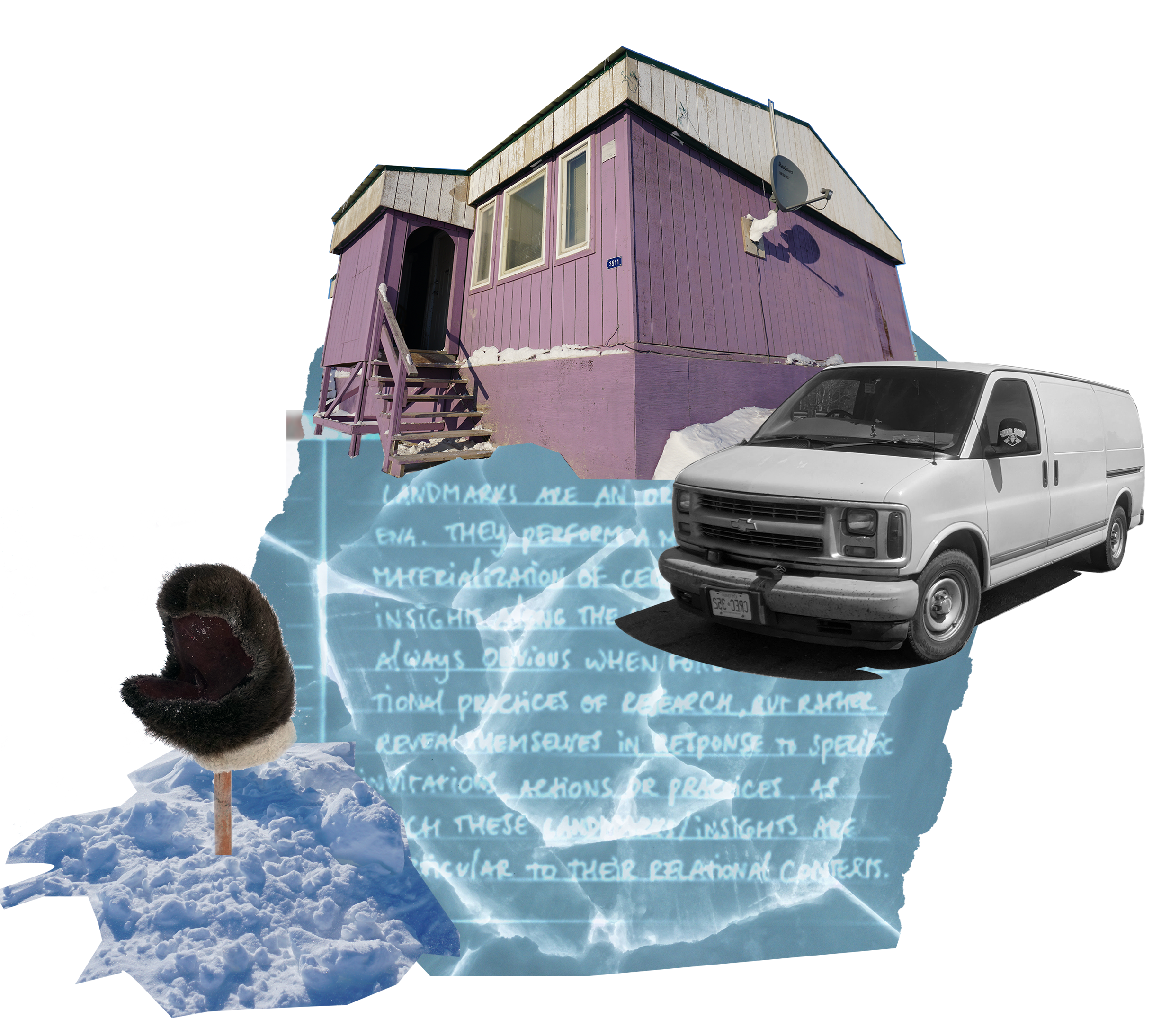Knowledge as Movement and Dwelling: Difference between revisions
No edit summary |
No edit summary |
||
| Line 7: | Line 7: | ||
This particular one, marks my understanding of how some knowledge only comes into being through movement- or ''as'' movement. | This particular one, marks my understanding of how some knowledge only comes into being through movement- or ''as'' movement. | ||
My continous moving in-between countries, territories, timezones, languages, cultures, relationships allowed for intra-relational thinking across entities and events, rather than inter-relational thinking merely between entities and events. It started to create tentative openings in which my campervan Butter, the covid-virus, hot tarmac, the seasons, vaccines, all became agents in the production of space, time, meaning and matter within my research, instead of the other way around. Slowly, I started to understand that any knowledge generated within this liminal space, requires attunement to the agential web of all the entities and events you move through and alongside with<ref>Braidotti, R. (2006 p.271). Transpositions: On nomadic ethics. Polity.</ref>. Even time and space itself is produced by the intra-relational dynamics within such a web. | |||
My continous moving in-between countries, territories, timezones, languages, cultures, relationships allowed for intra-relational thinking across entities and events, rather than inter-relational thinking merely between entities and events. It started to create tentative openings in which my campervan Butter, the covid-virus, hot tarmac, the seasons, vaccines, all became agents in the production of space, time, meaning and matter within my research, instead of the other way around. Slowly, I started to understand that any knowledge generated within this liminal space, requires attunement to the agential web of all the entities and events you move through and alongside with. Even time and space itself is produced by the intra-relational dynamics within such a web. | |||
<div class="next_choice"> | |||
'''"Return"''' to Cut 1: Voices of Thunder, if you were seeking to collaborate with the Gjoa Haven HTA - but you got redirected by the Covid-19 pandemic. | '''"Return"''' to Cut 1: Voices of Thunder, if you were seeking to collaborate with the Gjoa Haven HTA - but you got redirected by the Covid-19 pandemic. | ||
Revision as of 23:38, 25 February 2025

Landmarks are defining features in the land that traditionally play an important role in Inuit topographical understandings of their land and its resources. They are important orienting features to keep one's bearing while travelling and to determine where one is located at any given moment[1].
As a figure in this Knowledge-Land-Scape, "Landmarks" perform the materialization of certain findings and emergent insights along the way.
This particular one, marks my understanding of how some knowledge only comes into being through movement- or as movement.
My continous moving in-between countries, territories, timezones, languages, cultures, relationships allowed for intra-relational thinking across entities and events, rather than inter-relational thinking merely between entities and events. It started to create tentative openings in which my campervan Butter, the covid-virus, hot tarmac, the seasons, vaccines, all became agents in the production of space, time, meaning and matter within my research, instead of the other way around. Slowly, I started to understand that any knowledge generated within this liminal space, requires attunement to the agential web of all the entities and events you move through and alongside with[2]. Even time and space itself is produced by the intra-relational dynamics within such a web.
"Return" to Cut 1: Voices of Thunder, if you were seeking to collaborate with the Gjoa Haven HTA - but you got redirected by the Covid-19 pandemic.
Or,
